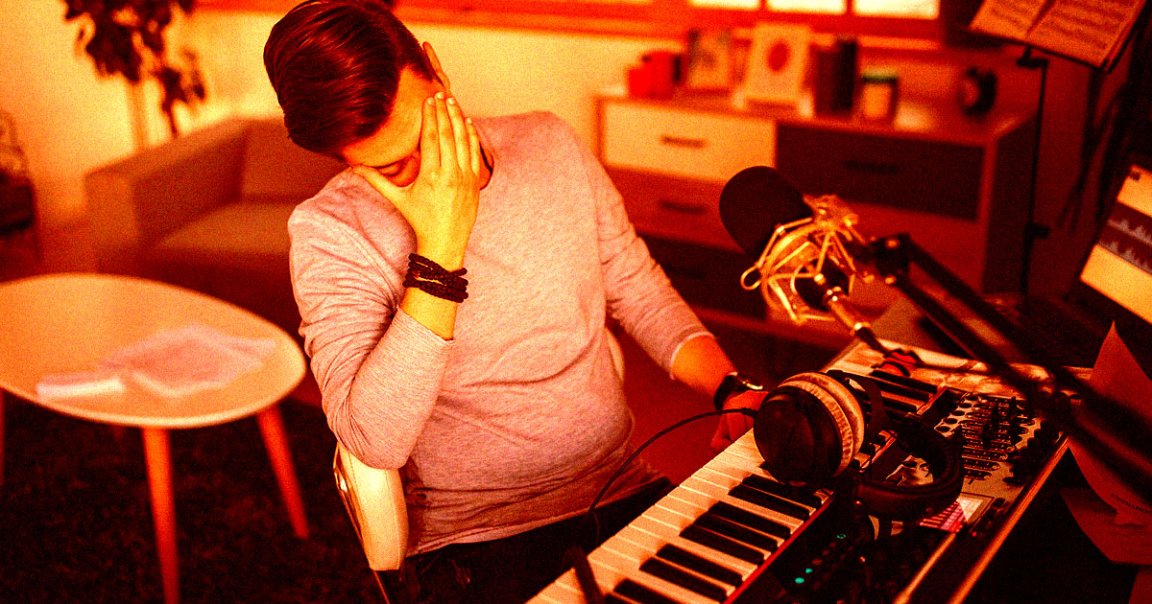
AI companies continue to reach for tortuous narratives to justify stuffing AI tech into virtually every aspect of our daily lives.
Take Mikey Shulman, the CEO of AI music generator company Suno AI, who had some choice words about how he sees the creative process when it comes to making music during an appearance on the “20VC” podcast flagged by 404 Media.
“It’s not really enjoyable to make music now,” he said. “It takes a lot of time, it takes a lot of practice, you need to get really good at an instrument or really good at a piece of production software.”
“I think the majority of people don’t enjoy the majority of the time they spend making music,” he added.
Shulman’s comments are astonishingly self-serving, as that’s exactly the kind of audience Suno AI is hoping to attract. And in reality, of course, lots of people — amateurs and professionals alike — love playing music.
If it were up to Shulman, it seems, music would devolve into an amalgamation of often copyright-infringing AI slop, allowing “artists” to create tracks with a click of a button.
In short, arguing that the majority of people no longer enjoy making music is symptomatic of an industry hellbent on eliminating as much of the human element from creative endeavors as possible — a dystopian vision, critics charge, of art as a whole.
According to Shulman, Suno AI is aiming to make making music “ten percent faster” and “ten percent easier.”
“If you want to impact the way a billion people experience music you have to build something for a billion people,” he told the 20VC podcast.
But whether the resulting, AI-generated music will give listeners the same kind of satisfaction as creating music themselves remains debatable.
Sure, creating your own bespoke track by typing some words into an AI music generator is a fun trick, but relegating almost the entire creative process to an algorithm leaves plenty to be desired.
Suno AI has also been caught up in a number of copyright lawsuits, with the Recording Industry Association of America accusing the startup of training its AI on copyrighted recordings without permission.
In other words, Shulman doesn’t just want people to give up agency in the creative process, but his company may be ripping off the work of human artists as well.
Shulman’s comments also highlight a nagging debate surrounding the use of these kinds of tools: can we even claim ownership over the resulting music? Is taking shortcuts with the help of AI really what human music artists should strive for? Could AI-generated music even be called “art?”
Users on social media were almost unanimously appalled by Shulman’s remarks on the podcast, calling his stance that almost nobody enjoys making music an “absurd mindset.”
“It’s very revealing,” one X user tweeted in response. “The solutionist language just doesn’t make sense for art, or for other things where the work is the enjoyment, but the tech companies seem stuck in their story.”
“What a dystopian future,” one YouTube commenter wrote. “And lack of self-criticality is especially disconcerting.”
More on AI music: Man Arrested for Creating Fake Bands With AI, Then Making $10 Million by Listening to Their Songs With Bots